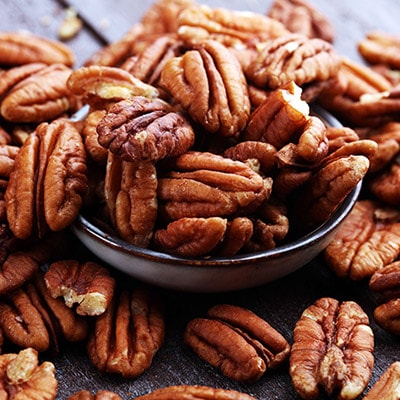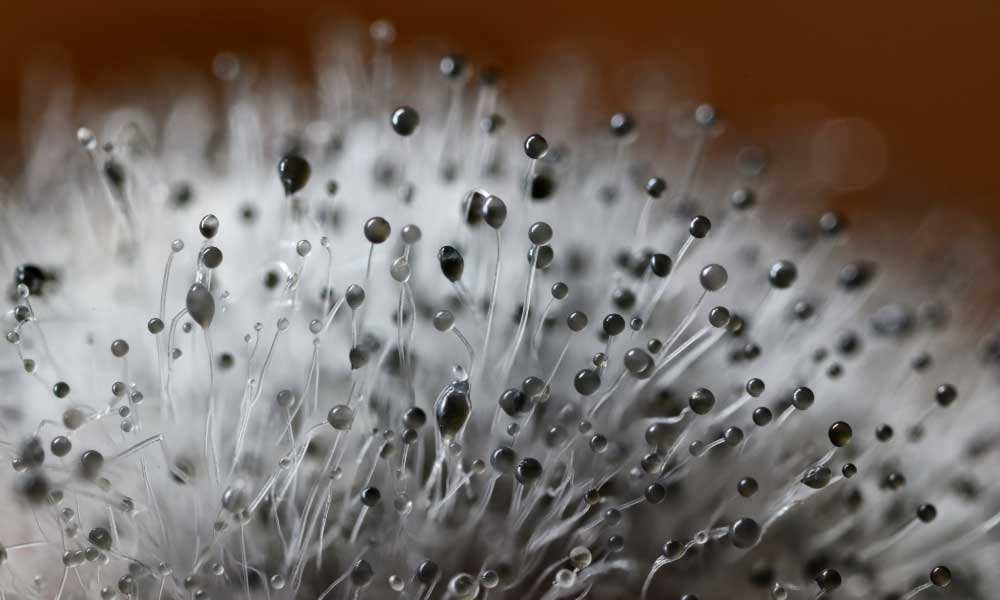 Pecan trees can live and produce nuts for 200-300 years.
Pecan trees can live and produce nuts for 200-300 years.
Background
- Pecans are a member of the Juglandaceae botanical family which also includes walnut and hickory.
- Pecans are native to the Southern United States.
Nutrition
- Pecans are an excellent source of manganese, and a good source of fiber, thiamin, and copper.
- Manganese assists with wound healing and cartilage and bone formation.
- Fiber helps to prevent and relieve constipation.
- Thiamin supports nervous system function.
- Copper encourages bone, collagen, and connective tissue formation.
How to Purchase, Prepare, and Store
- Purchase shelled pecans in grocery stores year-round.
- Store shelled pecans in the refrigerator in an airtight container for up to nine months or store them in the freezer in a sealed plastic bag for up to two years.
- Keep in-shell pecans in a cool, dry place for 6-12 months.
- Use a nutcracker to remove the outer shell. Once the shells are removed, use a toothpick to remove any excess shell material. Then leave the pecans in a colander for 24 hours to dry out. Next, place them in a covered container and store in a cool, dry place for up to a week. Store in the refrigerator or freezer for longer periods of time.
Pecan Nutrition Facts
1 oz. pecans (19 pecan halves), raw
- Calories: 196
- Protein: 2.6 g
- Fat: 20.4 g
- Carbohydrate: 3.94 g
- Fiber: 2.72 g
- Calcium: 19.8 mg
- Iron: 0.7 mg
- Magnesium: 34.3 mg
- Phosphorus: 78.5 mg
- Folate: 6.24 µg
- Vitamin A: 0.85 µg
Source: fdc.nal.usda.gov
Recipes
Request an Appointment
